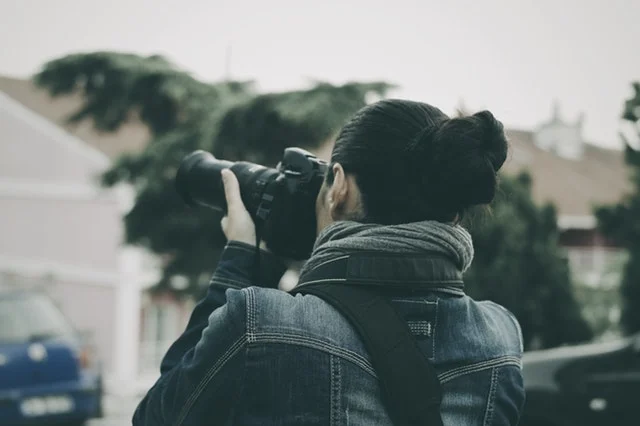Journalist Danielle Corcione explains Shitty Media Men List implications for freelancers
On January 10, 2018, I was celebrating my birthday with my boyfriend at Quartino, a loud but lovely Italian restaurant in Chicago’s River North neighborhood. When we finished celebrating and returned to my apartment on the cold January night, I checked Twitter and found journalists abuzz after New York magazine published an extremely vulnerable, powerful essay penned by Moira Donegan, contributor to various publications including the London Review of Books and N+1.
Before New York magazine published Donegan’s essay, rumors spread on social media that author and journalist Katie Roiphe would reveal that Donegan was the creator of the list in a piece for Harper’s. So when Donegan outed herself in a gripping essay, I devoured it due to my own curiosity and admiration for her bravery and selflessness.
In October 2017, Donegan created and distributed the Shitty Media Men List, a crowd-sourced Google spreadsheet containing the names of men in the journalism industry who had allegedly committed various acts of sexual misconduct and sexual assault. The accusations ranged from inappropriate messages to groping and rape. In her grippingly candid essay, Donegan explains why created the list, was forced to delete it shortly afterward, and the consequences she’s faced for her brave act.
The Shitty Media Men List is just one of several examples of whisper networks, critical survival advice passed along from one person to the next. And it’s not just staffers in the press who rely on whisper networks. Freelancers routinely tap into whisper networks for guidance on which publications will pay on time, which editors are good to work with, and what outlets pay the best rates.
Freelance journalist Danielle Corcione examined the necessity and implications of whisper networks as in an academic paper for the Journal of Feminist Media Studies, which you can read here or in the print edition of next month’s journal.
In a Q&A for The Freelance Beat, Corcione outlines the value of whisper networks and the next steps for safeguarding freelance media professionals:
Moira Donegan faced severe consequences for starting the Shitty Media Men list, but she also received an outpouring of support. I haven't seen a social media equivalent of freelancers outing sexual harassers, but I have freelancers speak up about lack of payment. What can freelancers learn from the #MeToo movement and Donegan's choice to establish a whisper network?
I am really interested in freelancers working together to build worker power. As newsrooms unionize, we are left out, and understandably so. But I wonder what a freelancer's movement could look like when it's not masked by a pseudo-union disguised as a nonprofit that pretty much only offers for-profit health insurance.
At the end of your paper, you point out that freelancers lack legal protections for sexual harassment cases. What should those protections look like? What are some examples of freelancer protections you'd like to see implemented?
In an ideal world, there wouldn't be sexual harassment or violence. There wouldn't be power structures in workplaces that enable sexual coercion. Some material protections we can aid freelancers with are:
establishing a protocol for reporting harassment and violence as a freelancer, which is included in our contracts
likewise, increasing communication with human resources departments
including us more often by inviting us to your Slack channels and holiday parties
understanding multi-marginalizations and how certain overlapping identities, such as Black transgender women of color, face higher rates of discrimination
identifying consequences, violations, and penalties for abusers
Whisper networks exist throughout the journalism industry. Why are whisper networks, whether warnings of “shitty media men” or publications that don't pay on time, also critical for freelancers?
Whisper networks are incredibly important for freelancers because the nature of our profession lacks the protective factors—physical office space, in-real-life communities of colleagues, health insurance, paid time off, structured schedules, to name a few—that others in our same industry have if they're on staff. A whisper network is a protective factor because a tip about an editor who doesn't answer emails can make or break someone's rent.
You mention the financial consequences for freelancers who speak out against their clients. In addition to the lack of legal protections, there also isn't a safety net for freelancers who lose clients. What financial protections should be implemented to protect freelance journalists?
I mentioned increased communication with human resources departments earlier. Upon a project or pitch being accepted, we need to know who deals with accounting from the contact hiring us. Give us their email address and phone number. How many times have you worked with an editor without ever speaking to anyone else who works for that same publication? Also, including us more in your workplace (even if it's your office outings) helps us create relationships with people who can advocate for us when we're not physically around.
What do the public and the journalism industry stand to lose if they don't protect freelance reporters and editors from sexual misconduct and sexual assault?
We need to look at what (or really, who) has already been lost, or was never present in journalism. We know that harassment and violence disproportionately affect non-men, and now non-men are becoming more represented (but still not completely) in newsrooms, we see how they're being affected by abuse, which is horrible. But a lot of the people who are the most vulnerable—queer and trans people and/or women of color and/or who are disabled and/or who have been under the custody of law enforcement—have never been nearly as represented in newsrooms as widely as the cisgender white women. So when we say sexual harassment and violence will deter women from working in journalism, we need to mention that lots of people never even had that place to leave in the first place.
Danielle Corcione is a Philadelphia-based freelance journalist with bylines in Teen Vogue, Complex, Esquire, Playboy. They also run The Millennial Freelancer blog. Follow them on Twitter and read their other published clips here.
What protections should freelance journalists have against sexual harassment, late payment or other abuses? Email me at contact@thefreelancebeat.com or tell me in the comments.





